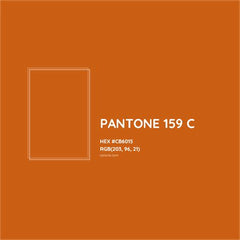Your cart is empty now.

What's the difference between TEAS PLUS and TEAS Standard and which should I choose?
- 02 April, 2024
- Nyall Engfield
Within the USPTO Filing system TEAS, there are primarily two filing options: TEAS Plus ($250 per class) and TEAS Standard ($350 per class), each with its own set of requirements, benefits, and filing fees. Understanding the differences between these two options is crucial for applicants to make an informed decision that aligns with their needs and capabilities.
TEAS Plus ($250 per class, faster)
TEAS Plus requires applicants to comply with more stringent requirements than TEAS Standard. When filing under TEAS Plus, applicants must:
- Use pre-approved descriptions of goods and services from the USPTO's Acceptable Identification of Goods and Services Manual.
- Agree to communicate electronically with the USPTO.
- Provide a valid email address and agree to receive correspondence from the USPTO electronically.
- Complete all fields in the application form at the time of submission.
The primary advantage of TEAS Plus is the lower filing fee per class of goods or services ($250 versus $350 for TEAS Standard). Also, the trademark registers about 2 months faster than TEAS Standard.The main benefit is 4X better rate of approval on first action!

TEAS PLUS is designed to streamline the application process and reduce the likelihood of errors that could delay the examination process. However, if an applicant fails to meet the TEAS Plus requirements after submission, the application could be converted to TEAS Standard, incurring additional fees and further delay.
TEAS Standard ($350, more flexible)
TEAS Standard offers more flexibility than TEAS Plus. Applicants are not required to use pre-approved descriptions, allowing for custom descriptions of goods and services tailored to their specific needs. This option is particularly beneficial for unique or novel products and services that may not fit neatly into the pre-approved descriptions. The TEAS Standard option also comes with a higher filing fee per class of goods or services due to the increased flexibility and potential for additional USPTO staff time to review the application.
Most low-cost trademark filers charge you a low initial fee but use TEAS Standard. This forces highers costs on you and delays your registration. The overall additional cost is higher than filing TEAS PLUS. TrademarKraft always files in TEAS PLUS if possible to save you fees and time.
Why Choose One Over the Other?
The choice between TEAS Plus and TEAS Standard depends on several factors, including the nature of the trademark, budget considerations, and the applicant's confidence in their ability to meet the stricter requirements of TEAS Plus.
-
Budget Constraints: If minimizing upfront costs is a priority, TEAS Plus may be the more attractive option due to its lower filing fee. However, it's important to be confident in meeting the TEAS Plus requirements to avoid the risk of conversion to TEAS Standard and additional fees.
-
Nature of Goods/Services: For goods and services that can be accurately described using the USPTO's pre-approved descriptions, TEAS Plus offers a straightforward and cost-effective filing option. On the other hand, if the goods or services are unique or the applicant prefers to provide a more detailed custom description, TEAS Standard provides the necessary flexibility.
-
Preference for Electronic Communication: TEAS Plus requires a commitment to electronic communication, which can streamline the process but might not be preferred by all applicants. If an applicant is less comfortable with exclusively electronic correspondence, TEAS Standard might be more appealing despite the higher cost.
The list of pre-approved goods are in the USPTO ID Manual. You can see if your goods and services are available in the pre-approved blurbs, for a faster and cheaper filing option. Don't get tricked by the low-cost filers.
If you have questions about which one is more advantageous to you, please reach out to the TrademarKraft team. We are here to answer any questions you have.
Search
Archive
- August 2024
-
- How to avoid being locked out of your Amazon product listings
- If you tattoo a trademark on your body - Skinvertising- can you be sued?
- Burnt Orange - University of Texas Trademark of Pantone 159
- Jungle Superheroes - famous characters similar to Tarzan and the difficulties of maintaining a monopoly
- What happens to the trademark rights if the renewal is missed



